- Culture
- 09 May 23
Michael Magee: "For young men where I grew up in Belfast, being hard or tough was capital"

Hotly tipped Northern author Michael Magee discusses his debut novel Close To Home, a gripping exploration of youth culture in recession-blasted Belfast, which also boasts a banging soundtrack. Portrait: Miguel Ruiz.
Set in Belfast in the aftermath of the financial crash, Michael Magee’s debut novel Close To Home focuses on Sean, a twenty-something nightclub worker who lives for the weekend, and dreams of escaping to a better life. However, a violent assault on another man at a party throws Sean’s life into tumult, and threatens to derail his future entirely.
Written in the first person, Close To Home is a compelling examination of working class life, with a gritty authenticity reminiscent of Irvine Welsh. I start by asking Magee if there are parallels between Sean’s story and his.
“I went to Liverpool at the same time he went, and came back around the same time,” replies the genial author. “It’s interesting even speaking about it now, because in a way, the recession hasn’t ended. People’s lives are no better than they were then. It was a very particular period, I remember how upended people’s lives were.
“I came home from Liverpool, and half the people I grew up with were gone, the other half were unemployed – they’d lost their apprenticeships, their trades and stuff like that. Those few years after it were burned into my brain, from around 2011-13.”
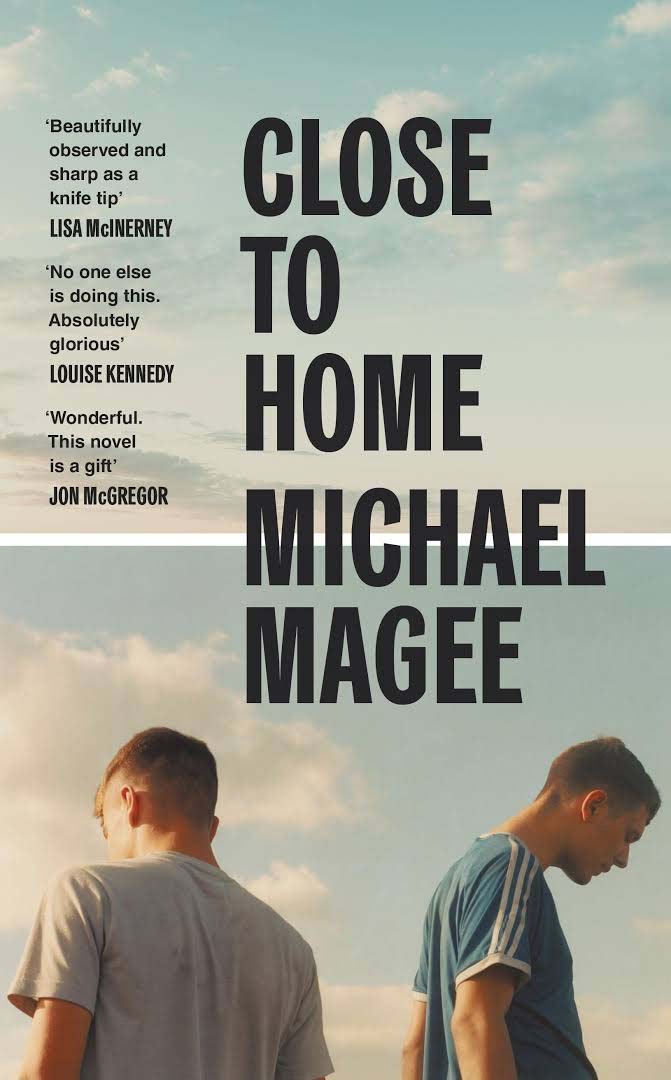
The financial crash is part of a continuum of turbulence that has marked the 21st century, which kicked off with 9/11, and has of late unfortunately continued with Covid, the Russia-Ukraine war and the cost of living crisis. As the man says, it’s a lot to be getting on with.
“It seems like it’s a feature of capitalism, you tend to get a crisis around every 10 years,” muses Michael. “And there’s a similar response to it: certain sections of society are bailed out, and others bear the brunt of the austerity measures – they have to live with the consequences of something that was completely out of their control. That was really at the front of my head when I was writing the book. I was thinking how these external structures influence Sean’s way of being in the world at that particular moment.
“He comes home from university with this degree, and it suddenly dawns on him that it’s not really worth the paper it’s written on. He then has to find a way to live, and that mode of living isn’t what he envisaged it would be. It’s probably similar with everyone around him as well: all young people around that time experienced that moment. Whatever optimism they felt at 18 or 19 was very quickly quashed at 21.”
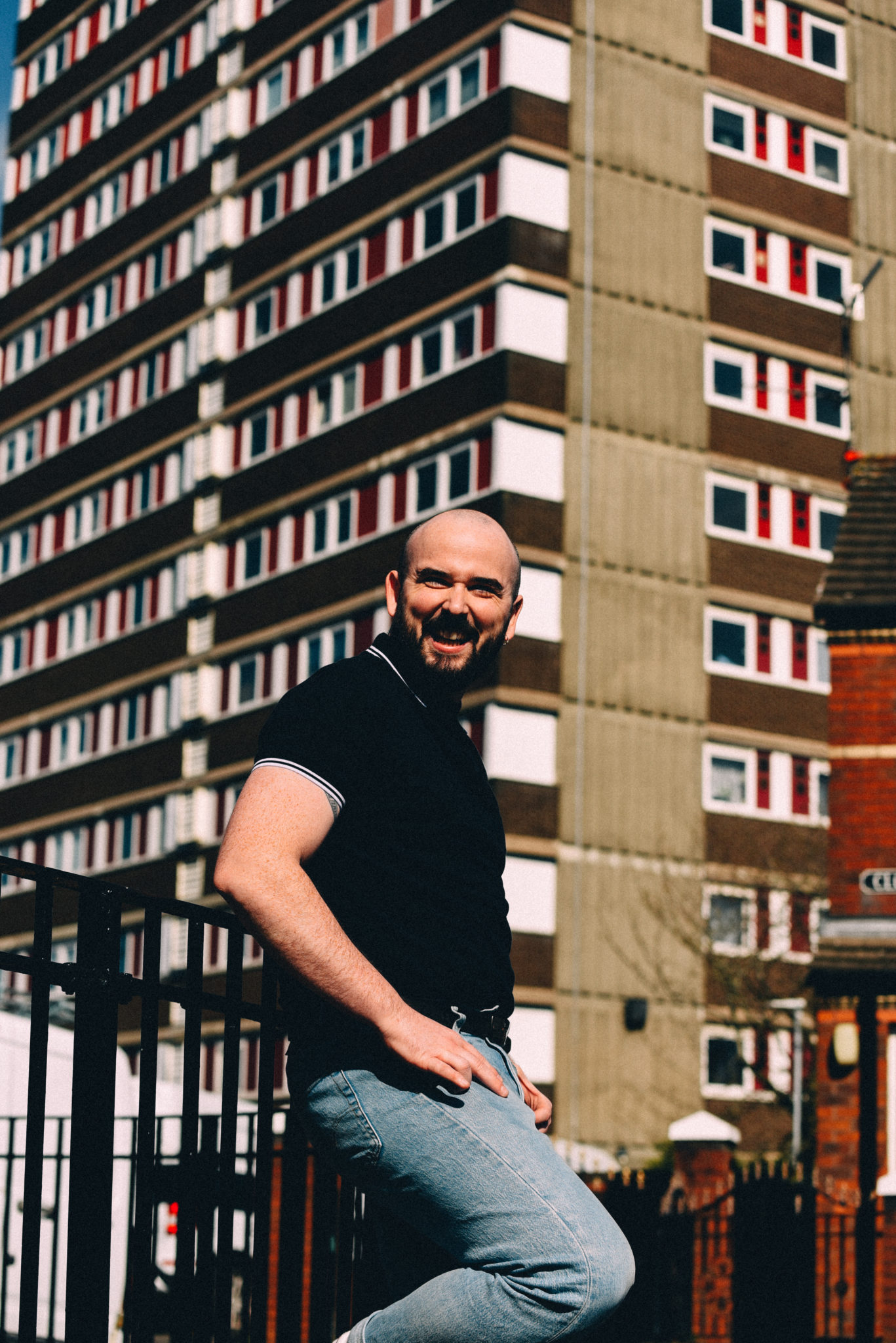 Michael Magee. Copyright Miguel Ruiz.
Michael Magee. Copyright Miguel Ruiz.In the space of just over a decade, society had been completely turned on its head from the time my generation left school, high on the optimism of the ’90s.
“It’s amazing when you think about what the ’90s were for people up north,” Michael considers. “In Britain, you had a Labour government being voted in in ’97, and then you had the Good Friday Agreement in ’98. You had these massive promises being made about this young generation, who weren’t going to experience the things their parents did during that 30-year conflict. They were promised they would reap the spoils of peace, but as a friend of mine said recently, ‘What spoils and for who?’”
Having moved to Liverpool after leaving school, Magee eventually returned to Belfast to study creative writing at Queens. Initially unsure of his authorial voice, he credits a conversation with ex-Stinging Fly editor, Thomas Morris, with giving him the confidence to write more directly about his experiences.
“It took me a long time to get to that point,” Michael reflects. “This is the thing about having these presumptions of what literary fiction is. There was also probably some degree of shame in my voice, and being reluctant to use it. I always felt this discomfort around it. The process of embracing it came from reading things that were similar to my experience of class – I’d see a working class voice articulated, and how you can use it as a mode of communication.”
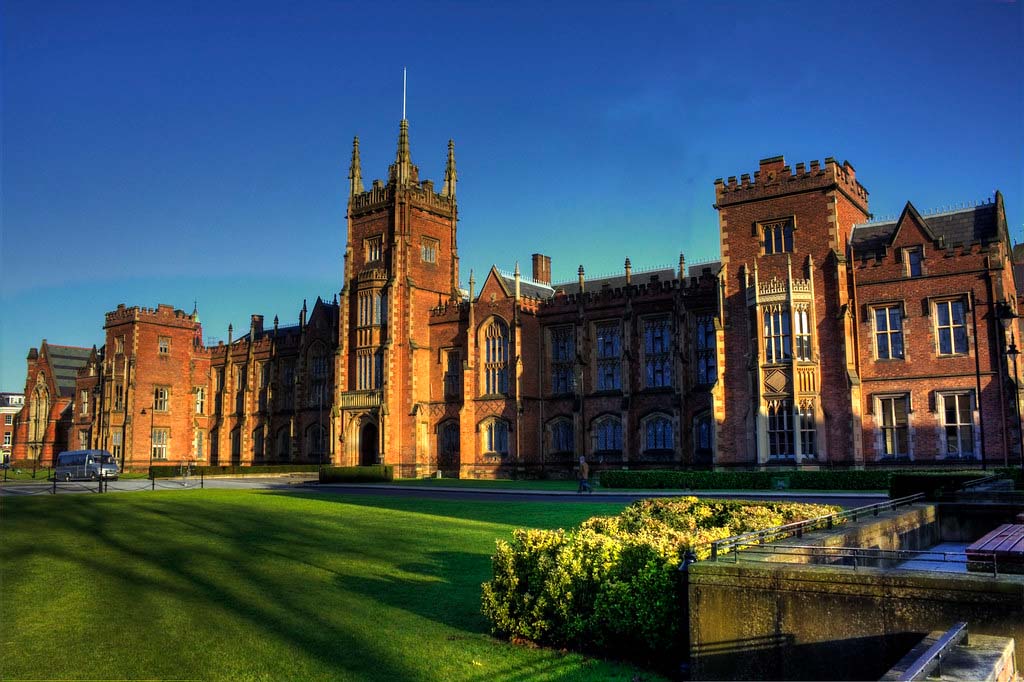
Class can be a tricky subject. My own story is mixed, in that my childhood was somewhat middle class, while my adolescence was more working class, or certainly lower middle.
“This is the thing, it’s never fixed,” nods Magee. “Class shifts. It’s never really limited to your economic income, there are other cultural indicators around it. There’s the social networks built around certain class positions and stuff like that. That’s the thing you quickly realise: you walk into a world that isn’t the one you grew up in, and there are all these networks of people around you, who know the rules of the game much better.”
It’s also a major elephant in the room in the supposedly enlightened liberal media. For all the banging on about hearing more working class voices, the sector remains dominated by people from the same exclusive universities.
“There’s always this weird degree of unconscious bias,” says Michael. “It’s always an interesting conversation in publishing, which is now happening – trying to figure out ways of publishing more people from a working class background, and making it more inclusive. You have an industry where anyone in authority comes from a profoundly middle class background, or they’ve been educated at a prestigious university, usually Oxford or Cambridge.
“There’s no one in publishing in London who hasn’t been to Oxbridge! That’s from agents right up to editors. They want to read things that speak to their experience directly, and I understand that. Because if I was an editor at a publishing house, I’d be publishing things that speak to my experience very directly, and I guess that’s how it happens.
“Also, in order to write, the vast majority of people need to have a level of education, like a degree in the humanities or creative writing. You need to be able to think critically. Now, there are people who are self-taught and just fly into it, but most people need that background. Because there are so few working class people who actually get to university, it makes it difficult to see where those new voices might come from.”
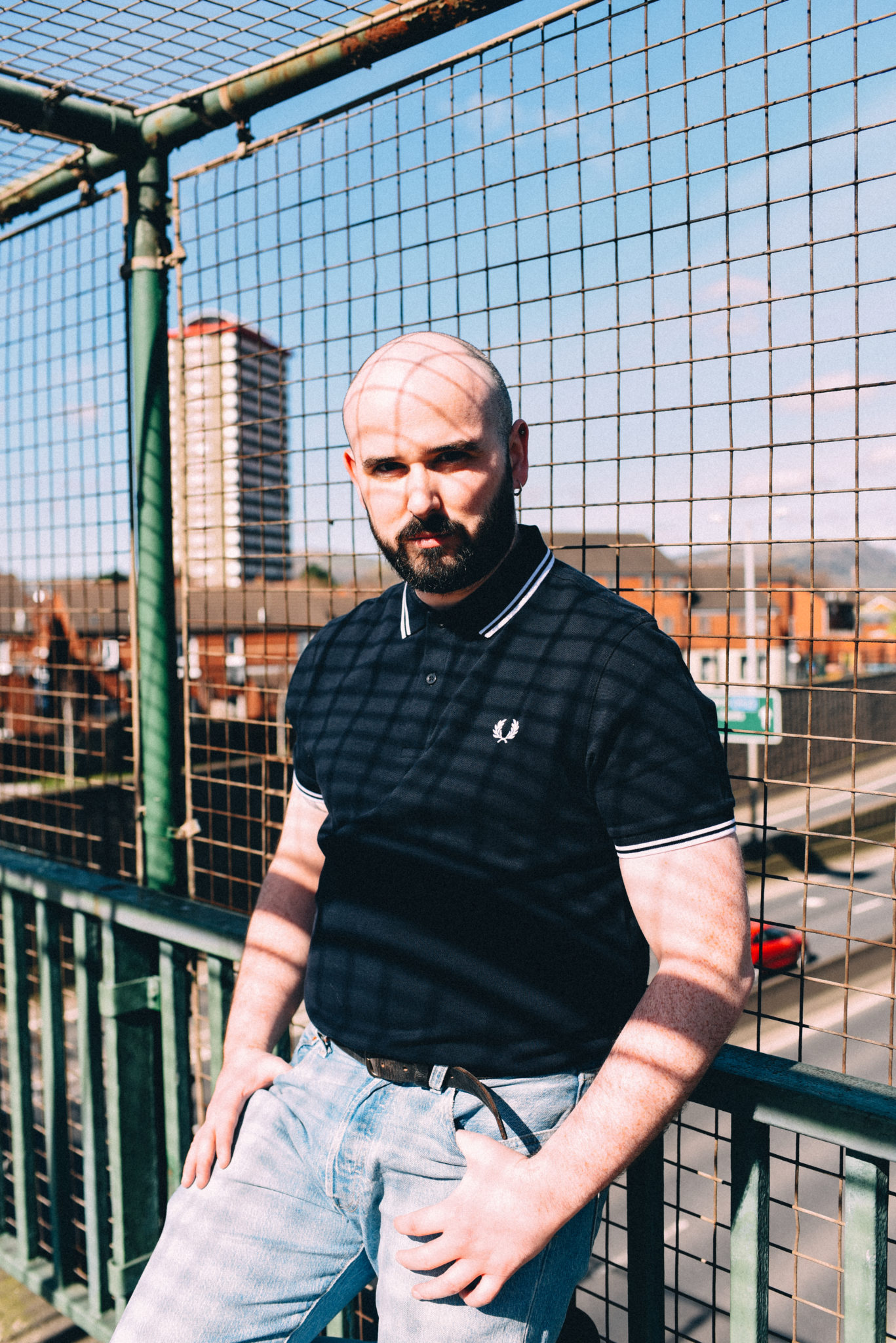 Michael Magee. Copyright Miguel Ruiz.
Michael Magee. Copyright Miguel Ruiz.AGAINST THE GRAIN
Close To Home might also be considered to go against the current literary grain, in that it features a male protagonist who commits an act of violence.
“It surprises me mate!” says Magee. “For a long time, there was also a feeling that London-based publishers wanted very little to do with anything coming from the north. If you sent a book with the words ‘Northern Ireland’ in the blurb, they were like, ‘Get that away from me!’ Then Milkman and Derry Girls happened, and there seemed to be an interesting turn.”
The reluctance to explore male violence in art is somewhat bizarre, given how big a factor it continues to be in society. From my experience growing up, the threat of violence – and the sense of people trying to impose themselves – loomed large over gatherings of young men. It’s something which, in particular, Martin Scorsese has explored brilliantly in his movies.
“Oh aye,” says Michael. “For young men where I grew up, being hard or tough was capital. That was the way social groups were organised. You had those at the top of the food chain, and those at the bottom, and people dominated others through the threat of violence as much as anything. In the novel, Sean comes from a world where the main mode of resolving conflict is through violence.
“That impulse is in him, but also against his character in a weird way. He doesn’t like violence, and all the violence he’s experienced in life has affected him in a way that hangs on him. He carries it around with him. The book opens with this punch, and when the reader reads that, they have an idea immediately of who Sean is. But as the rest of the book unfolds, you get a clearer idea of the forces that were influencing him in all sorts of ways.
“The trauma he’s carrying around found an outlet through this act, and that was the thrust behind the story.”
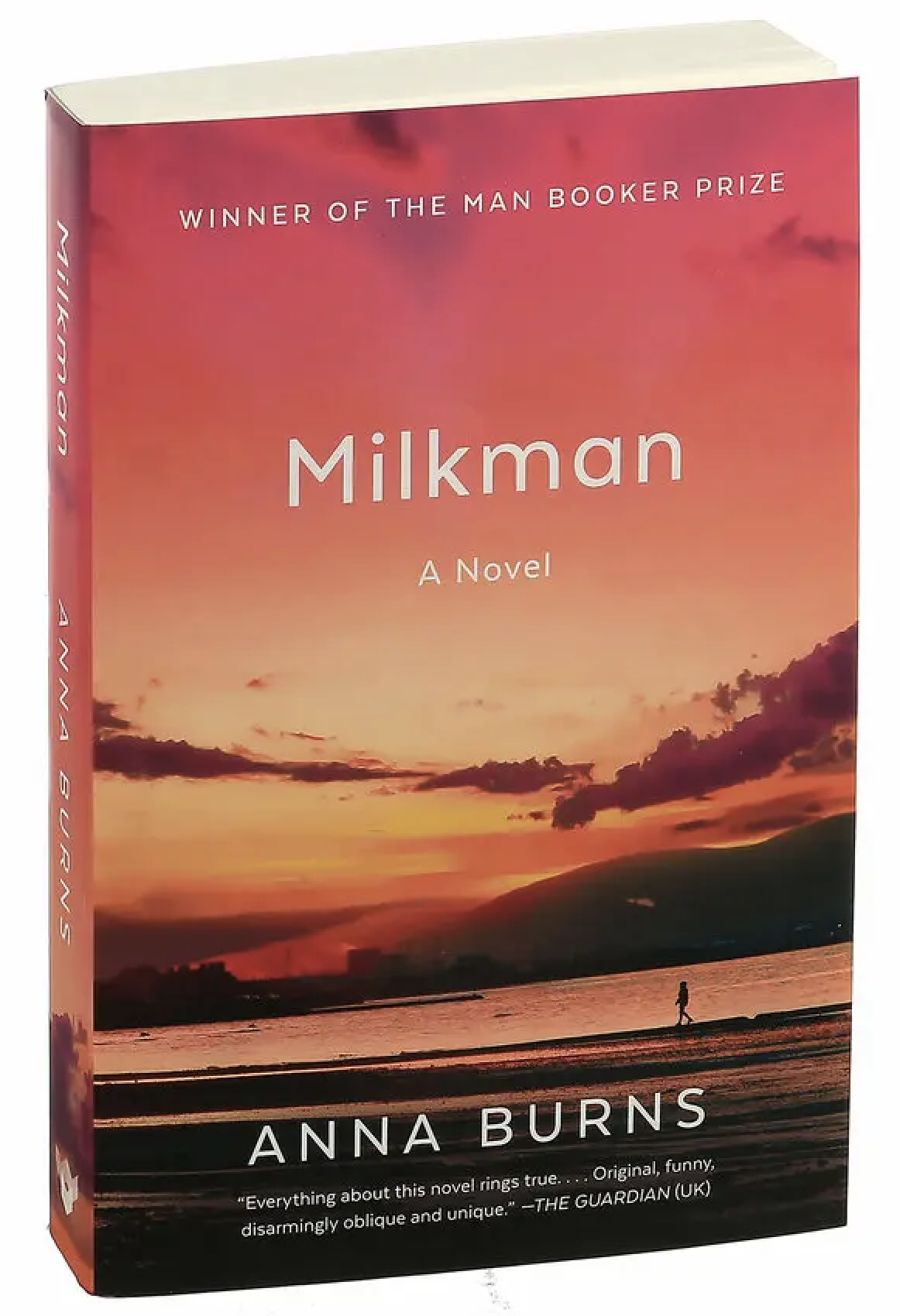 Milkman by Anna Burns.
Milkman by Anna Burns.It’s an idea that the author teases out further.
“There are also different modes of violence,” he notes. “There’s physical violence, and there’s the symbolic violence a person feels when they enter a world they’re unused to. There’s the violence of the guy who says something provocative to Sean at the house party, where he’s surrounded by these four middle class kids making him feel inadequate in all sorts of ways. His response to that is, ‘If this is your way of being violent to me, I’ll show you how violence operates in my world’. That’s the moment it turns.”
Being interested in writing and culture, I read literary novels voraciously as a teenager, although I was probably alone in my peer group in doing so. Even today, I’m still probably inclined to read novels more than most of my friends. Nonetheless, there remains a very devoted literary audience out there, and Close To Home shouldn’t have trouble finding a readership, with Magee even included on The Observer’s 10 Best New Novelists of 2023.
“Similarly, growing up, I read almost secretively,” laughs the author. “I didn’t want my mates to know that I read in case they called me gay! That was always the worry. I’ve been reading voraciously since I was about 12 or 13. Particularly when I came back to Belfast at 21 or 22, I really wanted to find people who were interested in books and the stuff I was into.
“I didn’t know that this other literary world existed, that there were poetry open mic nights, readings, magazine launches and so on. I sought it out, only because I wanted to talk to people about the stuff I was interested in. I wanted to get into that world. Then you’re suddenly introduced to it, and you’re like, ‘Okay, this is a very different world to the one I’m used to.’”
BELFAST AUTHORS
He’s certainly not the only Belfast author to get attention of late, as evidenced in a piece on The Guardian’s website on the morning of our interview. Author Rachel Connolly – whose novel Lazy City is also set in Belfast – suggested some in the publishing industry were encouraging a rivalry between her and Magee.
“I read that literally about 20 minutes ago,” says Michael. “She’d actually told me she was doing it and sent me a draft a few weeks ago. I was like, ‘Okay, well you crack on!’ But they really done me over with the fucking picture that they used, did you see it?! The Observer sent out a photographer and that was the pic they used. There was food all over the floor, dead plants – it looks like I’m living in squalor!
“I think she was making an interesting point in the article about there being two novels set in Belfast. They’re very different books, set in different parts of the city, and that’s grand – they can peacefully co-exist.”
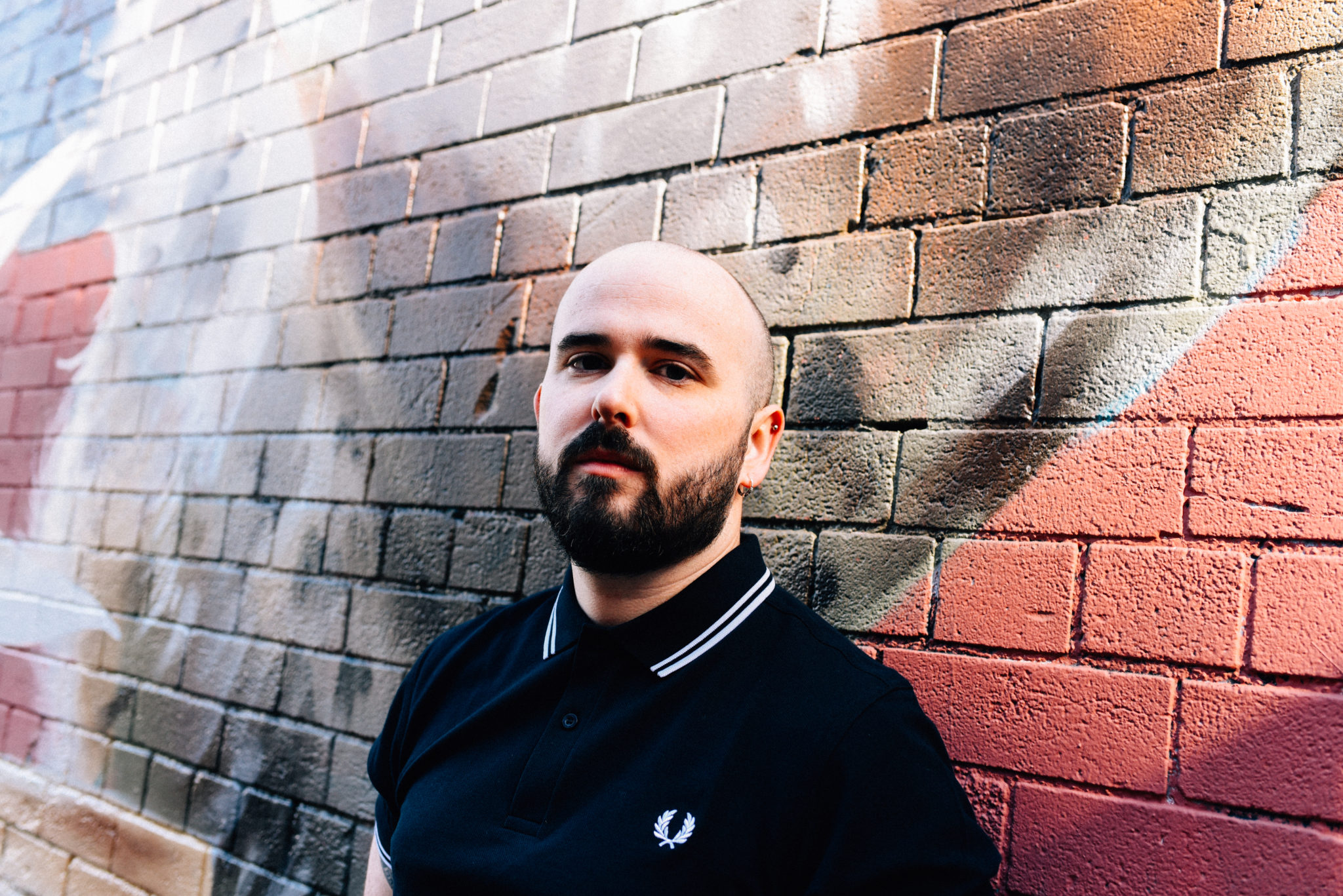 Michael Magee. Copyright Miguel Ruiz.
Michael Magee. Copyright Miguel Ruiz.Finally, I mention the extent to which music features in Close To Home, with Sean and his friends all enthusiastic clubbers.
“In that period of my life, there was a lot of music happening, and a lot of recreation happening around the music,” Michael recalls. “When I was Liverpool in particular, it was all dubstep. I remember that kicking off in 2008 and 2009, which aligned really well with the introduction of that drug that was knocking about, miaow-miaow. That was the buzz.
“I don’t listen to as much dance as I used to, I’m weirdly into country. Also, when I was writing the book – and I think a few writers have admitted to doing this – I had some of the old ambient going, like Brian Eno and Jon Hopkins.”
It was nice to see a mention in Close To Home for dance maestro Green Velvet, a favourite of nu-rave heroes Klaxons – a band I maintain should have been as big as Arctic Monkeys.
“The Monkeys have almost stuck around too long at this point, haven’t they?” says Michael. “Although saying that, I have a mate from Sheffield and he’s the biggest Monkey head in the world. But yeah, it’s a lot of country for me these days, and throw in a bit of Kneecap as well. They’re fantastic and really savvy. They’ve got a lot of grief, but there’s a real punk spirit to them – they’re fighting against the establishment in some way.”
• Close To Home is out now.
Read more interviews in the new issue of Hot Press.
RELATED

- Culture
- 30 May 23
Arctic Monkeys perform 'Mardy Bum' for first time in 10 years

- Culture
- 12 May 23
CMAT and The Murder Capital are playing Glastonbury Festival

- Culture
- 05 May 23
Summer Festival Special 2023: Day Festivals

- Culture
- 06 Mar 23




